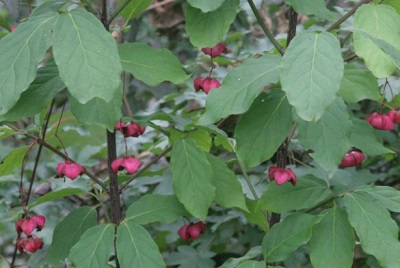Herbs And Phytochemicals: Anticancer Potential And Molecular Targets Of The Phytochemical Pristimerin In Human Cancers
Nikhil Prasad Fact checked by:Thailand Medical News Team May 07, 2024 11 months, 2 weeks, 4 days, 19 hours, 45 minutes ago
Herbs And Phytochemicals: Cancer remains a significant global health concern, necessitating the exploration of novel and effective therapeutic strategies. Pristimerin (PS), a triterpenoid derived from the Celastraceae and Hippocrateaceae families, has garnered attention for its potent anticancer properties across various malignancies. This
Herbs And Phytochemicals news report delves into the molecular targets and mechanisms of action of PS, highlighting its potential as a valuable addition to cancer therapy.
 Herbs And Phytochemicals: Anticancer Potential And Molecular
Herbs And Phytochemicals: Anticancer Potential And Molecular
Targets Of The Phytochemical Pristimerin In Human Cancers
Herbal Compounds and Cancer Therapy
The landscape of cancer treatment has expanded to include herbal compounds, driven by their reduced side effects and notable efficacy. Among these compounds, Pristimerin or PS stands out for its broad-spectrum anti-tumor activity, making it a promising candidate for overcoming the limitations of current cancer therapies.
Mechanisms of Action
PS modulates key cellular processes such as apoptosis, autophagy, cell migration, invasion, angiogenesis, and chemotherapy resistance. Its interactions with signaling pathways like NF-κB, p53, and STAT3 underscore its multifaceted anticancer effects.
-Induction of Apoptosis
Apoptosis, a regulated cell death mechanism, is essential for maintaining cellular homeostasis. PS triggers apoptosis via both extrinsic (death receptor) and intrinsic (mitochondrial) pathways, leading to caspase activation and cellular demise. Its ability to generate reactive oxygen species (ROS) further enhances its cytotoxic effects across various cancer types.
-Induction of Autophagy
Autophagy, a cellular process that degrades damaged organelles and proteins, plays a dual role in cancer. PS induces autophagy in response to cellular stressors, impacting cancer cell survival and death. The upregulation of autophagy-related genes and proteins by PS contributes to its anticancer efficacy.
-Inhibition of Cell Migration, Invasion, and Metastasis
Metastasis is a complex process involving cancer cell migration, invasion, and colonization of distant sites. PS inhibits epithelial-mesenchymal transition (EMT), a critical step in metastasis, by modulating key EMT markers. Its effects on integrin β3 and miRNA-mediated signaling further impede cancer cell migration and invasion, highlighting its potential in metastatic cancer treatment.
-Targeting Cancer Stem Cells (CSCs)
Cancer stem cells (CSCs) play a pivotal role in tumor initiation, progression, and treatment resistance. PS targets CSC markers and pathways associated with self-renewal and invasiveness, offering a promising strategy to hinder tumor recurrence and metastasis.
-Angiogenesis Inhibition
Angiogenesis, the formation of new blood vesse
ls, is crucial for tumor growth and progression. PS inhibits angiogenic signaling pathways, reducing vascular endothelial growth factor (VEGF) expression and impeding tumor angiogenesis. Its effects on hypoxia-inducible factor 1α (HIF-1α) and sphingosine kinase 1 (SPHK-1) further contribute to its anti-angiogenic properties.
-PS and Targeted Pathways
PS exerts its anticancer effects by targeting multiple signaling pathways, including the PI3K/AKT, ROS/MAPK, NF-κB, HIF-1α/SPHK-1, ubiquitin-proteasome, Wnt/β-catenin, and Shh/Gli1 pathways. These interactions disrupt cellular processes critical for cancer cell survival, proliferation, invasion, and metastasis.
-Overcoming Multidrug Resistance (MDR)
Multidrug resistance (MDR) poses a significant challenge in cancer treatment. PS has shown promise in overcoming MDR by inhibiting drug efflux pumps, modulating signaling pathways associated with resistance, and enhancing the efficacy of chemotherapeutic agents.
Conclusions and Future Perspectives
Pristimerin (PS) emerges as a potent anticancer agent with diverse molecular targets and mechanisms of action. Further research is warranted to elucidate its specific interactions, validate its efficacy in clinical settings, and explore combination therapies to maximize its therapeutic potential. Integrating advanced technologies and conducting comprehensive clinical trials will pave the way for PS's successful integration into cancer treatment protocols, offering new hope for patients battling malignancies.
In conclusion, Pristimerin (PS) holds immense promise as a multifaceted anticancer agent, targeting various molecular pathways critical for cancer progression. Its ability to induce apoptosis, inhibit metastasis, overcome drug resistance, and modulate key cellular processes underscores its potential as a valuable addition to cancer therapy. Future research and clinical trials are essential to fully harness PS's therapeutic benefits and optimize its clinical application, ultimately benefiting patients worldwide in the fight against cancer.
The study review was published in the peer reviewed journal: Pharmaceuticals.
https://www.mdpi.com/1424-8247/17/5/578
For the latest on
Herbs And Phytochemicals, keep on logging to Thailand Medical News.
